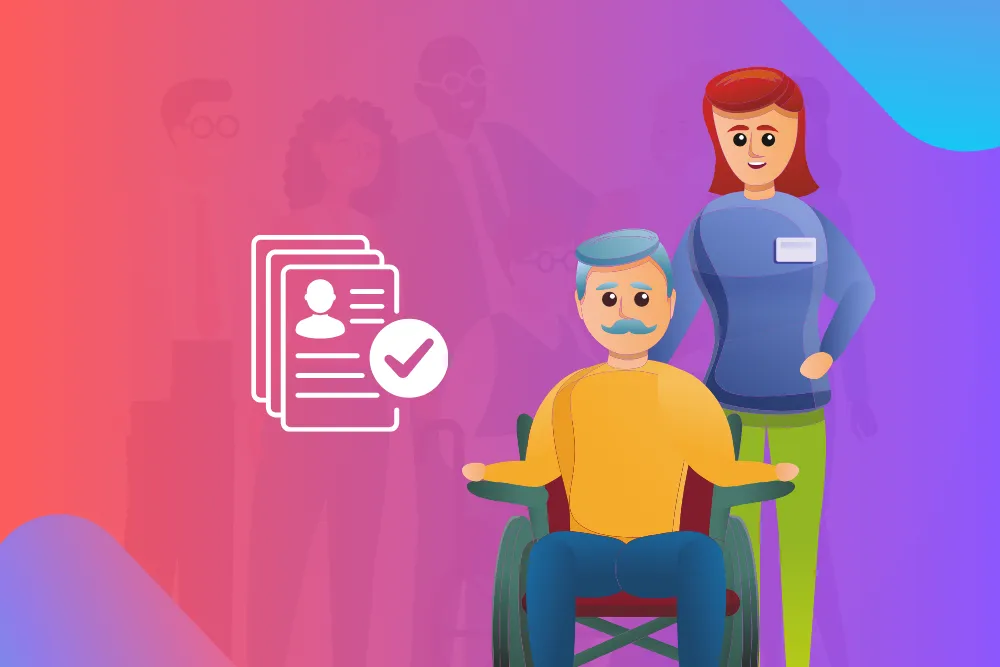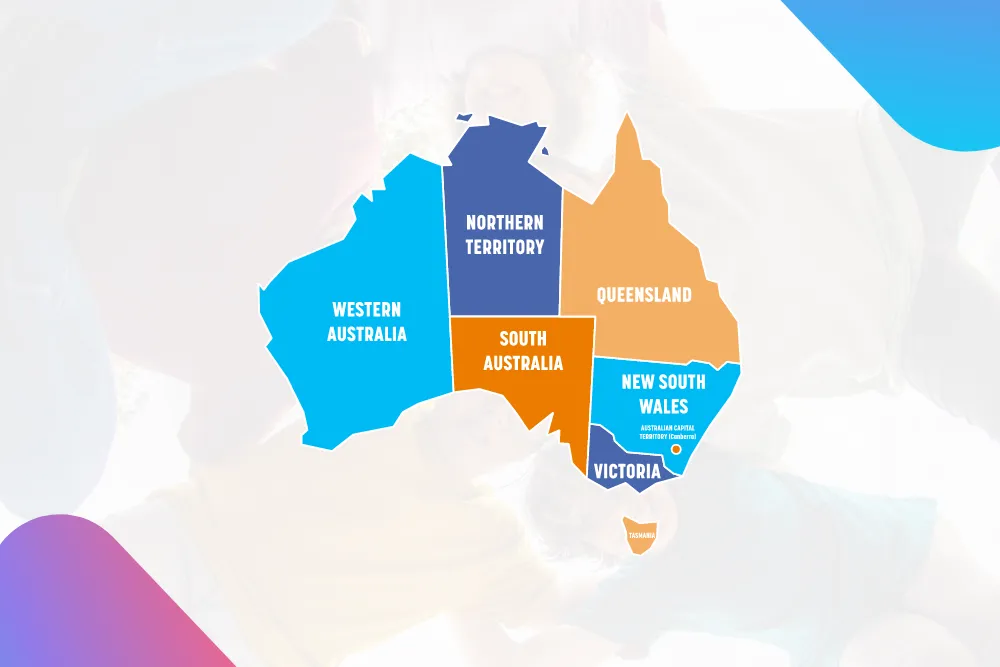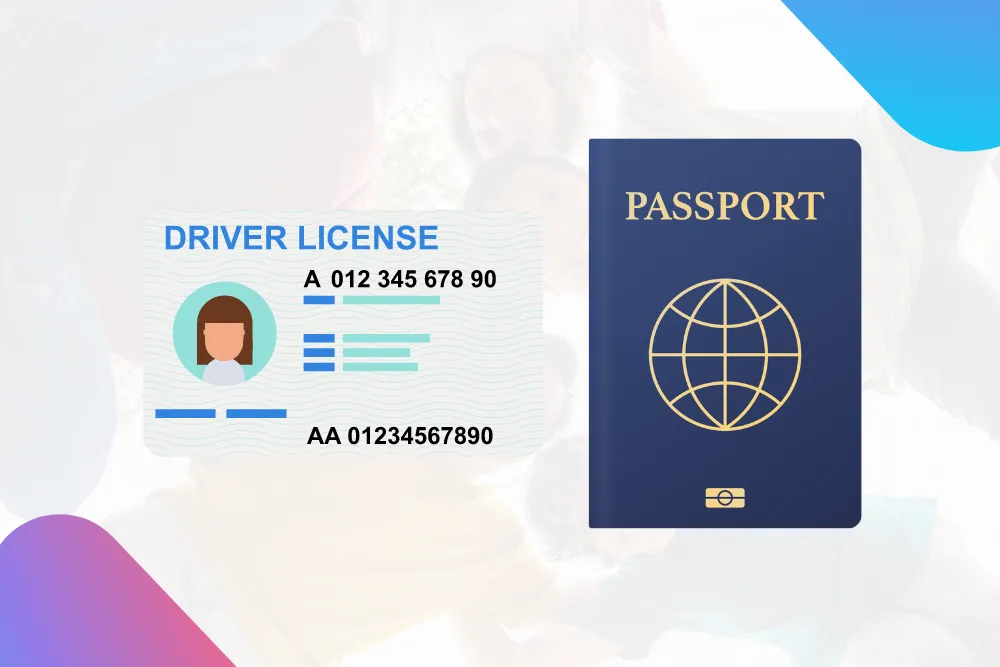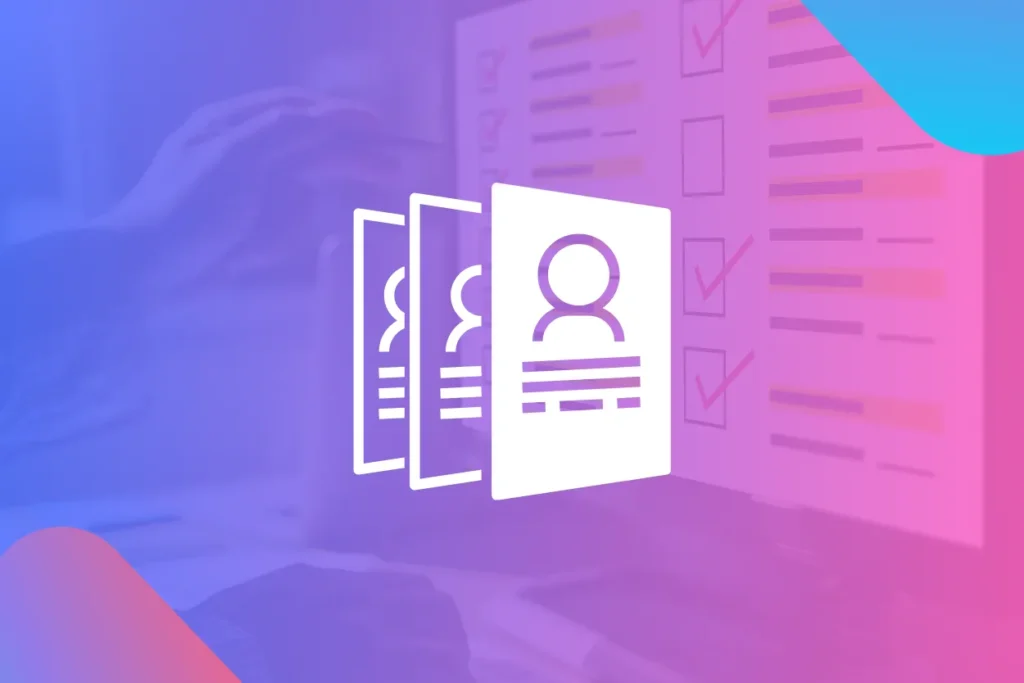- Get one month of SEO for free when you design a website with us.
The NDIS Worker Screening Check, also known as the NDIS worker check, is a crucial initiative to ensure the safety and quality of support services for people with disabilities. It evaluates individuals applying for roles within the NDIS to identify potential risks they may pose.
In this article, we will explore what is the NDIS worker screening check, its purpose, application process, and its benefits for NDIS participants and providers.

Previously, providers relied on various acceptable checks to ensure the suitability of workers.
The need for a more standardized and robust system led to the establishment of the NDIS Worker Screening Check.
This comprehensive screening aims to ensure that workers can provide safe and quality services for NDIS participants.
The national worker screening database plays a crucial role in verifying and managing an individual’s NDIS Clearance status.
This database allows employers to check the clearance status of potential workers and ensures that only those who have passed their checks are linked to an NDIS provider, emphasising the regulatory and operational aspects of worker screening within the NDIS framework.
Proving their identity is a critical first step for workers applying for the NDIS Worker Screening Check.
This process safeguards the interests of NDIS participants and helps maintain the trust and integrity of services provided under the National Disability Insurance Scheme.

The NDIS Worker Screening Check is a thorough evaluation designed to assess whether individuals seeking employment with NDIS participants pose any potential risk. Its primary purpose is to ensure people with disabilities receive care and support from individuals who pose no threat to their safety and wellbeing, which is why ndis worker screening checks are essential. The ndis worker screening law plays a crucial role in this process.
Conducted by the Worker Screening Unit in each state or territory, this check determines whether a person is cleared or excluded from working in certain roles. The decision hinges on a detailed assessment of various risk factors, ensuring that only those who meet stringent criteria are allowed to work with NDIS participants.
For NDIS providers, this screening helps maintain compliance with NDIS Practice Standards and ensures their workforce is capable and trustworthy. It standardizes the safety screening policy across regions, providing a consistent approach to safeguarding NDIS participants. A registered NDIS provider must ensure that employees in risk-assessed roles possess the appropriate NDIS worker checks, verifying compliance with the regulations.
Applying for the NDIS Worker Screening Check involves several steps designed to ensure thorough verification and compliance. The process can be initiated through various platforms, with Service Victoria offering the quickest method. Support is available through Service Victoria’s virtual assistant, Vicky, to guide applicants through the process.
Clearances obtained in one state or territory are not transferable, requiring workers to undergo separate checks if they plan to work across different regions. This ensures all NDIS workers meet local requirements and standards, enhancing overall safety.
The NDIS Worker Screening Check is a mandatory requirement for all workers who work in risk-assessed roles with people with disability. This includes:
If you are unsure whether you need an NDIS Worker Screening Check, you should contact your employer or the NDIS Quality and Safeguards Commission’s Worker Screening Helpdesk for guidance. Ensuring that all individuals in these roles have undergone the necessary screening helps maintain the safety and quality of care for NDIS participants.
Risk-assessed roles are positions that involve working with people with disability and require a high level of trust and responsibility. These roles may include:
Providing personal care or support to people with disability
Working with people with disability in a residential or community setting
Providing transportation or escort services to people with disability
Working with people with disability in a role that requires a high level of trust and responsibility
Registered NDIS providers are responsible for identifying risk-assessed roles within their organization and ensuring that workers in these roles have an NDIS Worker Screening Check. This proactive approach helps safeguard the well-being of NDIS participants and ensures compliance with NDIS quality standards.

Applying for an NDIS worker check involves several steps to ensure that individuals working with people with disability meet the required safety and suitability standards. Here’s a general outline of the process:
1. Check Eligibility
Ensure you meet the criteria for the NDIS worker screening check. This usually includes being involved in direct contact with people with disability or having unsupervised access to them.
2. Gather Required Documents
Prepare and gather your identity documents. Typically, this includes primary and secondary identity documents, proof of address, and any additional documents that might be required.
3. Create an Account
Register for an account with the relevant state or territory screening authority. Each state or territory in Australia has its own process and portal for managing worker screening checks.
4. Complete the Application Form
Fill out the application form either online or on paper, depending on your state or territory’s process. Provide all requested personal details and complete any required declarations or consent forms.
5. Submit Supporting Documents
Upload or submit your identity documents and any additional documentation required as part of your application.
6. Pay the Fee
Pay any applicable fees associated with the screening check. Fees can vary depending on your state or territory.
7. Complete the Screening Process
Your application will be reviewed, and you may be required to undergo a national criminal history check, and in some cases, a working with children check or other background checks.
8. Await Results
The screening authority will process your application and conduct the necessary checks. This may take several weeks. You’ll be notified of the outcome once the screening is complete.
9. Receive Your Screening Clearance
If approved, you’ll receive a clearance or a certificate indicating your suitability to work with people with disability.
10. Maintain Your Clearance
Be aware of the renewal process and any ongoing requirements to maintain your NDIS worker screening clearance.

For the most accurate and detailed instructions, refer to the NDIS website or the screening authority’s website in your state or territory.
Related: How Many Types of Autism Are There?

For the National Disability Insurance Scheme (NDIS) worker screening check in Australia, you typically need to provide a combination of identity documents to verify your identity and background. The specific documents required can vary, but generally, you’ll need:
Primary Identity Documents (at least one from this list):
Secondary Identity Documents (at least one from this list, in addition to the primary document):
Proof of Address:
Additional Documentation (if applicable):
It’s important to ensure that the documents you provide are current and correctly reflect your personal details. For the most accurate and updated information, check the NDIS Worker Screening Unit’s guidelines or consult their website directly.
Verification is a critical step in the NDIS Worker Screening process. Here’s how it works:
Verification Timeframe:
Role of Registered NDIS Providers:
Benefits of Timely Verification:
By adhering to these verification requirements, both employers and self-managed participants help facilitate a smoother and faster screening process, ensuring that workers are appropriately cleared to begin their roles.

The NDIS Worker Screening Database, also known as the national worker screening database, is an essential tool for monitoring the screening status of workers within the NDIS framework. Here’s how different users can access and use this resource:
Registered NDIS Providers:
Unregistered Providers and Participants:
This system ensures that both registered and unregistered users, as well as participants managing their own services, can effectively monitor and manage the screening compliance of individuals working within the NDIS sector.
If you have an NDIS Worker Screening Clearance, it is your responsibility to maintain it.
This includes:
Failure to maintain your clearance may result in it being revoked or suspended. Staying vigilant about your clearance status ensures that you remain eligible to work in risk-assessed roles and continue providing essential support to NDIS participants.
As an employer, it is your responsibility to ensure that workers in risk-assessed roles have an NDIS Worker Screening Check. This includes:
Identifying risk-assessed roles within your organization
Ensuring that workers in these roles have an NDIS Worker Screening Check
Verifying the clearance status of workers through the NDIS Worker Screening Database
Maintaining records of worker clearances and ensuring that they are up-to-date
Registered NDIS providers can access the NDIS Worker Screening Database to verify the clearance status of workers. By adhering to these responsibilities, employers contribute to a safer and more reliable environment for NDIS participants.
The outcome of an NDIS Worker Screening Check may be one of the following:
Clearance: The worker is cleared to work in a risk-assessed role.
Exclusion: The worker is excluded from working in a risk-assessed role.
Interim Exclusion: The worker is temporarily excluded from working in a risk-assessed role while further information is gathered.
Revocation: The worker’s clearance is revoked due to new information or a change in circumstances.
Workers who are excluded or have their clearance revoked may be able to appeal the decision or reapply for a clearance in the future. Understanding these outcomes helps workers and employers navigate the screening process and ensure compliance with NDIS regulations.
NDIS Worker Screening Clearance is a crucial certification for individuals working within the NDIS sector. Here’s an overview:
Validity and Recognition:
Purpose:
Determining Clearance:
Ongoing Monitoring:
Role of Registered NDIS Providers:
By maintaining clearance and adhering to these regulations, NDIS workers and providers contribute to a safer environment for individuals with disabilities.
The NDIS Worker Screening Helpdesk is a key resource for support and guidance throughout the screening process. Here’s how you can utilize it:
Contact Information:
Purpose of the Helpdesk:
Application Tips:
Support Provided:
By maintaining clearance and adhering to these regulations, NDIS workers and providers contribute to a safer environment for individuals with disabilities.
Related: How to get NDIS clients?
A criminal history can significantly impact the NDIS Worker Screening Check in several ways:
Overall, while certain offenses lead to automatic disqualification, the screening process provides avenues for risk assessment and contesting decisions to ensure that all relevant factors are considered.
The NDIS Worker Screening Check is a background check designed to ensure that individuals who work with people with disability under the National Disability Insurance Scheme (NDIS) do not pose a risk to their safety and well-being.
It assesses criminal history, professional conduct, and other relevant information to determine an individual’s suitability for working in the sector.
The processing time for the NDIS Worker Screening Check can vary, but it generally takes several weeks.
Factors that can affect the timeframe include the volume of applications, the complexity of the criminal history check, and the need for additional information or clarifications.
If you do not pass the NDIS Worker Screening Check, you will be notified and given information about the decision.
Depending on the outcome, you may have the option to appeal or provide additional information.
It’s important to address any concerns or issues identified during the screening to improve your chances of eligibility in the future.
You should not commence work with NDIS participants until your screening check is completed and cleared. Starting work before this could be a violation of NDIS regulations and might affect your employment.
If you move, you may need to apply for a new check in your new state or territory. Each region has its own NDIS Worker Screening Unit, and you should inform them of your change in address and any other relevant details.
Yes, volunteers who have direct contact with NDIS participants must also undergo the check. This ensures that all individuals interacting with participants meet the required safety standards.
Related: Top 5 NDIS Accountants
In summary, the NDIS Worker Screening Check is a critical tool in ensuring the safety and quality of services provided to NDIS participants. From the initial application process to the ongoing monitoring of cleared workers, every step is designed to protect and empower individuals with disabilities.
By understanding and complying with the NDIS Worker Screening Check, providers and workers can contribute to a safer, more reliable environment for everyone involved in the National Disability Insurance Scheme. This comprehensive approach not only safeguards participants but also upholds the integrity and trust within the NDIS community.
We’re an NDIS marketing agency specialising in helping NDIS providers grow online. Our services includes NDIS website design, NDIS SEO, Google Ads management, Facebook advertising & graphic design.
